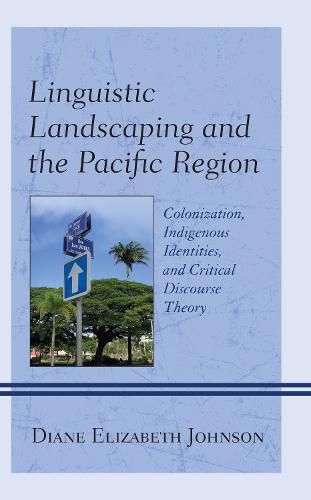Readings Newsletter
Become a Readings Member to make your shopping experience even easier.
Sign in or sign up for free!
You’re not far away from qualifying for FREE standard shipping within Australia
You’ve qualified for FREE standard shipping within Australia
The cart is loading…






In Linguistic Landscaping and the Pacific Region: Colonization, Indigenous Identities, and Critical Discourse Theory, Diane Elizabeth Johnson provides four case studies, each exploring the use of language in public spaces in an area of the Pacific in which colonization has played a major role: The Kingdom of Hawai'i/Hawai'i, Aotearoa/New Zealand, Kanaky/New Caledonia, and Tahiti. Each of these studies is informed by critical discourse theory, highlighting the ways in which hegemonic structures may be established, reinforced, and- particularly in times of crisis-contested and overturned. The book introduces the case studies in the context of a parallel introduction to the Pacific region, critical discourse theory, and research on linguistic landscapes. The critical discussion is accessible to students and others who are approaching these contexts and theories for the first time, while also locating the author's work in relation to existing scholarship. Johnson urges readers to listen carefully to the voices of indigenous peoples at a time when the danger of Western certainties has been fully exposed.
$9.00 standard shipping within Australia
FREE standard shipping within Australia for orders over $100.00
Express & International shipping calculated at checkout
In Linguistic Landscaping and the Pacific Region: Colonization, Indigenous Identities, and Critical Discourse Theory, Diane Elizabeth Johnson provides four case studies, each exploring the use of language in public spaces in an area of the Pacific in which colonization has played a major role: The Kingdom of Hawai'i/Hawai'i, Aotearoa/New Zealand, Kanaky/New Caledonia, and Tahiti. Each of these studies is informed by critical discourse theory, highlighting the ways in which hegemonic structures may be established, reinforced, and- particularly in times of crisis-contested and overturned. The book introduces the case studies in the context of a parallel introduction to the Pacific region, critical discourse theory, and research on linguistic landscapes. The critical discussion is accessible to students and others who are approaching these contexts and theories for the first time, while also locating the author's work in relation to existing scholarship. Johnson urges readers to listen carefully to the voices of indigenous peoples at a time when the danger of Western certainties has been fully exposed.